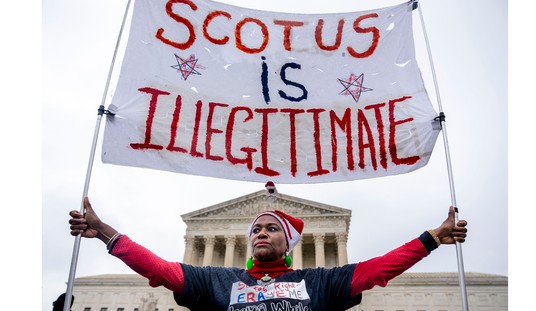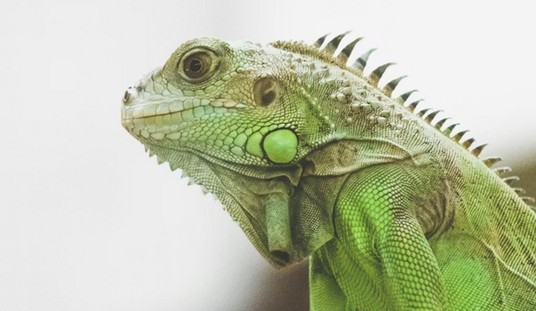When internet celebrity Emily Ratajkowski posed naked next to a condemnation of the abortion laws being passed in states like Georgia and Alabama, she no doubt didn’t realize she was making an argument that eugenicists have been making since the turn of the 20th century: that abortion can be used to cleanse the population of those they, in their God suits, deem undesirable.
You can find the picture on your own, but here’s the accompanying statement:
This became relevant again on Tuesday when SCOTUS acted on a petition from the state of Indiana, handing a victory to those who believe fetal remains shouldn’t be treated as literal trash but declining to act on the second part of the law in that state: the “nondiscrimination” provision that “bars abortions based on the disability (such as Down syndrome), sex or race of the fetus.”
While SCOTUS passed on making a judgment on the second provision, Justice Clarence Thomas took the opportunity to write 20 pages on the issue, calling out abortion as a potential “tool of eugenic manipulation” and writing about the history of the eugenics movement and its relationship to Planned Parenthood.
Justice Clarence Thomas filed a 20-page concurring opinion, which he began by noting that he “would have thought it could go without saying that nothing in the Constitution or any decision of this Court prevents a State from requiring abortion facilities to provide for the respectful treatment of human remains.” Thomas devoted most of his opinion, however, to a history of the eugenics movement in the United States. He concluded by stressing that the Supreme Court’s decision not to weigh in right now on the constitutionality of Indiana’s ban on abortions based on the race, sex or disability of the fetus “should not be interpreted as agreement with the decisions” striking down the ban. “Enshrining a constitutional right to an abortion based solely on the race, sex, or disability of an unborn child, as Planned Parenthood advocates, would,” Thomas suggested, “constitutionalize the views of the 20th-century eugenics movement.” And even if the Supreme Court is not taking up such issues now, he continued, “we cannot avoid them forever. Having created the constitutional right to an abortion, this Court is dutybound to address its scope.”
As a black man from the segregated South serving on the Supreme Court, who rose to a height no doubt many men and women he encountered in his life would have thought impossible, the issue of eugenics as it relates to abortion might be of particular interest to Thomas.
The CNN article about Thomas’ extraordinary opinion is quite good (albeit quite biased, as is the way of CNN) as it attempts to explain to those (like Ratajkowski) who may not understand the symbiotic relationship killing babies en utero has always had to “cleansing” the human race of “inferior” genes through eugenics.
In making his point, Thomas dedicated more than a dozen pages on the history of the eugenics movement to explain why “the use of abortion to achieve eugenic goals is not merely hypothetical.”
Wading through history, he noted that some eugenicists believed that the “distinction between the fit and the unfit could be drawn along racial lines,” and others would define a person as “feeble-minded.”
Thomas said he was prompted to address the history of the movement because the case at issue “highlights the fact that abortion is an act rife with the potential for ‘eugenic manipulation'” and he urged his colleagues that they could “not avoid” such issues forever.
“Having created the constitutional right to an abortion, this Court is duty bound to address its scope,” Thomas said.
Jessica Levinson, a professor of law at Loyola Law school notes that Thomas in his opinion suggests that the fetus is being discriminated against.
“He may try to place abortion laws under the rubric of anti-discrimination laws” in the future, Levinson said.
So the Hollywood and Washington left are right to worry about the future of abortion on demand. The move toward humanizing babies victimized by abortion has begun in Indiana through the discussion of treating their remains with respect.
Justice Thomas going on record and opining that those babies already carry the constitutional right not to be discriminated against is a huge jump toward personhood as well.
Get ready, America, for the new abortion debate.
















Join the conversation as a VIP Member